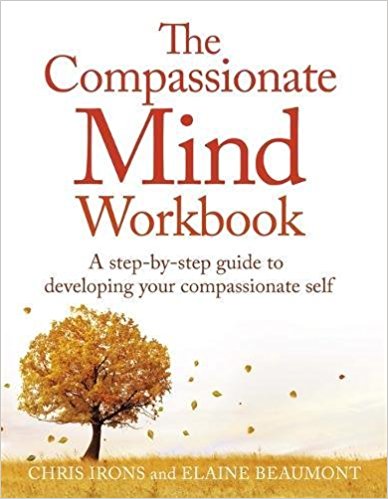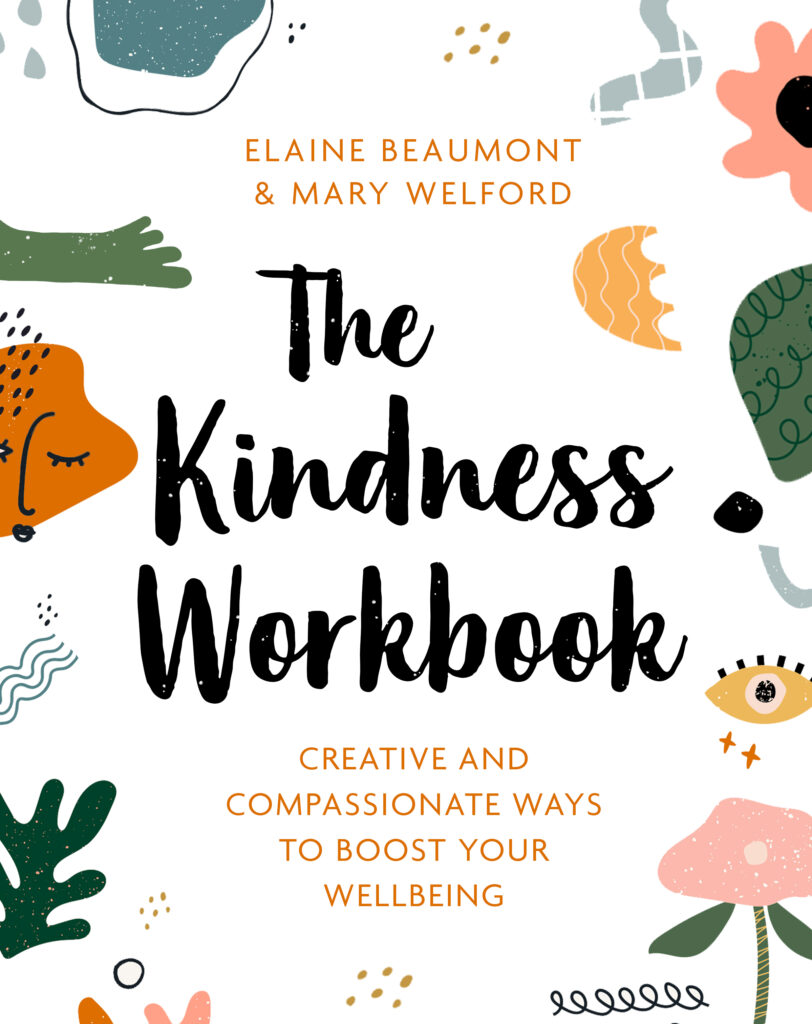The Kindness Workbook
Life can be a juggling act
Our bodies and hormones change as we grow, usually at the same time as important decisions about our future need to be made. We often put extra pressure on ourselves, compare ourselves unfavourably to others and excessively worry about what they think. Add in social media, exams, interviews, peer pressure, celebrity culture and everyday stressors, and it’s no wonder our wellbeing can take a nosedive.
The Kindness Workbook will help you navigate such complex times and combines amazing ideas and practices from a variety of therapies. The Kindness Workbook aims to give your wellbeing a boost, help you value your true self and introduces you to creative exercises including:
- Guided imagery • Mindfulness • Mind maps • Vision boards
- Music • Physical activity • Art • Letter-writing
Eye-catching illustrations and interactive worksheets also help bring the book to life. Your kindness journey starts right here.
Endorsements
‘A beautiful and accessible book to boost your wellbeing with KINDNESS by two of the leading compassion focused therapists working with young people’. Professor Paul Gilbert OBE, Founder of Compassion Focused Therapy.
‘This entertaining book is full of many different types of practices that young people can do to be kinder to themselves. As the authors show, self-kindness is key to happiness and wellbeing’. Kristin Neff, PhD, Associate Professor at the University of Texas, Austin, co-developer of the Mindful Self-Compassion programme, pioneer in the field of self-compassion research and bestselling author.
‘The Kindness Workbook takes you on a journey of self-discovery that will help you learn to be kinder to yourself’. Dr Emma Seppälä, Director of Stanford University’s Centre for Compassion and Altruism Research and Education. Bestselling author of The Happiness Track.
‘Throughout your whole life, caring and kindness will lead you to greater emotional and psychological health. This excellent workbook will be your guide’. Dr Dennis Tirch, author and founder of the Center for Compassion Focused Therapy, USA.
I love The Kindness Workbook! It was written with young people in mind, but it’s a cornucopia of creative ideas for young people, parents, teachers, therapists and anyone who is interested in boosting wellbeing’. Prof Sam Cartwright-Hatton, Professor of Clinical Child Psychology, University of Sussex.
‘‘I think it’s a great book! Written with warmth, humour and care. A relevant book for our uncertain times. It’s akin to having a best version of your future self, to help you navigate tricky paths. Love it!’ Vee Howard Jones, Head of Counselling and Psychotherapy, University of Salford.
‘A kind and warmly-written book full of clear explanations and useful exercises. It’s fab! Will be so useful both for clinicians and people reading on their own’. Dr Lucy Maddox, Consultant Clinical Psychologist. Author of ‘Blueprint – How Our Childhood Makes Us Who We Are’.
‘Do we really understand what ‘kindness’ is; it is talked about a great deal but rarely explained. This beautiful and welcome book takes us through what it really means to integrate kindness into our ‘selves’ and is a must-read for, well… everyone’. Dr Andrew Reeves, Associate Professor in the Counselling Professions and Mental Health.
‘As a one-stop resource for developing personal or group wellbeing, this is an excellent workbook for everyone! As a school, we will be using this with pupils, staff and parents to boost our ethos of mindful compassion and wellbeing for all’. Marianne Best, Headteacher.
The Compassionate Mind Workbook
There is good and increasing evidence that cultivating compassion for one’s self and others can have a profound impact on our physiological, psychological and social processes. In contrast, concerns with inferiority, shame and self-criticism can have very negative impacts on these processes and are associated with poorer physical and mental health. The Compassionate Mind Workbook is for anyone who is interested in how compassion – in the form of ideas and practices derived from Compassion Focused Therapy (CFT) and other approaches – may help us to engage with, understand and ultimately, try to alleviate suffering. CFT utilises both Buddhist practices and Western psychological science. It draws on neuroscience, insights into emotion regulation and identity formation, interpersonal psychology and a range of psychotherapeutic models. CFT-based interventions can help people with a range of mental health problems develop compassion for themselves, be open to the compassion of others and develop compassion for others.This workbook is a step-by-step guide to CFT, in which the chapters build your understanding of yourself, the skills that give rise to a compassionate mind, and ways to work with whatever difficulties you’re struggling with in life. The exercises, prompts and case stories in this book provide an understandable and practical way to develop compassion.
Amazon Book Reviews
‘A fab book! It is super easy to read and nicely laid out, and it’s written with a warm, authentic and caring tone. There is some nice humour used throughout the book which is really lovely, because it makes the book more personal and again, less clinical. I will definitely recommend this books to others’.
‘This workbook is a MUST resource for anyone interested in compassion. I have used this workbook both personally and professionally (and often re-read chapters/go back to certain points in the book as/when required). The workbook is written in a very easy to understand, accessible manner. I think the balance of theory, questions to reflect on the theory (and apply it to oneself) and then the addition of exercises makes this workbook incredibly unique and really enables one to begin to cultivate a sense of compassion for self and others’.
‘Personally, the workbook helped me understand (and have compassion) for myself and has provided me with ways/tools to move towards and work with difficulties that arise in life’.
‘Saw this was recommended through the NHS and it’s an excellent book that I would highly recommend. Good if you can’t afford therapy, just don’t want to go or want something to use alongside it; this will help you to understand yourself and be kinder to yourself and others. It has helped me to work through a period of anxiety and calm down. I feel this has helped me to consider the characteristics of becoming a better person. I think if you are anxious, angry or tend to beat yourself up about things – this book will help you to improve your quality of life’.
‘Excellent book. I am a therapist and encourage all my clients to purchase this book which enables them to reduce the number of sessions needed to help with their issue. I have also found it a very helpful reminder for myself’.
‘The beauty of this book is that is brings to life the concepts and methods of compassion focused therapy / compassionate mind training in a way which is simple, supportive and achievable. I have used this book with my clients and for my own personal development with rewarding results. Definitely recommended’.
‘Well structured, informative, and fully evidenced by very credible practitioners and researchers in the field. Highly recommended’
‘Really clear insightful book for those looking to understand compassion focused therapy. Great examples and pages to work through exercises on your own’.
‘Wonderfully effective book that uses an easy to follow step-by-step approach to becoming more compassionate towards self and others. Has a lot of mindfulness techniques. An effective and comforting book to work through. I am pleased with my purchase and would buy again’.
‘I work through this book every night before bed. It’s been transformational. You have to want to change first before it has an effect on you. It has been awesome’.
‘What a lovely book. The authors write in such a warm and engaging way it is as if they are in the room with you talking you through the book. They offer numerous everyday examples which clearly illustrate the points being made and use excellent case examples to bring the material to life. The exercises are clear and easy to follow and allow the reader to get the most out of the book’. Being such a big book it could feel a little daunting but the minute you begin reading you become absorbed and the pages fly by. It is great for anyone wanting to understand and use self compassion whether personally or professionally’.
‘Amazing book!! It is well written with step-by-step guidance. I am a therapist, found it helpful for myself and recommend it to my clients for better understanding of themselves. It’s helpful to go through each chapter or delve in whenever the need arises. I encourage you to try it. It explains concepts in a simple way. It is well written, simple language, jargon free, accessible and supportive. A great resource’.
‘Best book for self-compassion’.
‘CBT therapist approved! It helped me on my self-compassion journey so much! I discovered so many things about myself, the patterns and habits I have been maintaining for years without realising. A lot of stuff became clear to me and it helped in turning things around for the better. I keep coming back to this book and still digging through. It requires a lot of inner work to give you the desired results. It’s based on research and practical exercises. Cannot recommend this workbook enough’.
‘Simply the best book on the market for Compassion Focused Therapy to be used in small chunks at your own pace – thought provoking and emotional journey’.
‘So, when a book comes along which is grounded in solid research, combines wisdom from the West and East, is written by respected psychologists who know their stuff, and offers an alternative way to look at things, rather than a totally ‘new you’, you’ve got to sit up and take notice. You need a book that is approachable, structured, and written in simple but not condescending terms’.
‘Irons and Beaumont present an easy to access workbook which guides the reader through the concepts of Compassion Focused Therapy, developing compassion, building foundations to develop a more compassionate self, and offers ways to develop and maintain compassion beyond the reaches of the book into your everyday life. Exercises and case studies maintain the interest and provide realistic and achievable progress towards a more balanced way of approaching life’.
‘This book is a valuable contribution to the literature on CFT but also can be a wise companion on your journey to a different way of viewing yourself and managing all kinds of distress encountered in life’.
‘This books succeeds in being incredibly concise and helpful, providing an excellent roadmap for therapists and clients to navigate the development of compassion. Can’t recommend it enough’.
Publications
Books
Beaumont. E., & Welford, M. (2020). The Kindness Workbook: Compassionate and Creative Ways to Boost Your Wellbeing. London: Robinson
Irons, C., & Beaumont, E. (2017). The Compassionate Mind Workbook. A step-by-step guide to developing your Compassionate Self. London: Little, Brown Publishers
Book Chapters
Beaumont, E. (2023). Compassionate Mind Training. In Roddy, J. (Eds.). Working with survivors of domestic abuse: A Handbook for Counsellors, Psychotherapists, and other Mental Health Professionals. Routledge: London
Roddy, J., & Beaumont, E. (2023). Preparing for and continuing Client Work. In Roddy, J. (Eds.). Working with survivors of domestic abuse: A Handbook for Counsellors, Psychotherapists, and other Mental Health Professionals. Routledge: London
Beaumont, E., Norris, G., Hollins Martin, C.J. (2022). Challenging conversations and principled decision making in the supervisory and assessment relationship between student midwives and supervisor(s) (Chapter 6). In Roberts, D., Leigh, J. (Eds.). Supervision and assessment of student nurses and midwives in clinical practice. Lantern Publishing Limited: Cheltenham (UK)
Research Publications
Beaumont, E., Dagnall, N., Massey, S., & Irons, C. (2024). Evaluating the impact the Self-Compassion App has on levels of Compassion, Psychological Distress and Well-being. Counselling and Psychotherapy Research, 00, 1–12. https://doi.org/10.1002/capr.12841
Beaumont, E., Irons, C., & McAndrew, S. (2022). A qualitative study exploring the impact The Self-Compassion App has on levels of compassion, self-criticism and wellbeing. OBM Integrative and Complementary Medicine 7(3):23; https://www.lidsen.com/journals/icm/icm-07-03-045
Beaumont, E., Bell, T., McAndrew, S., & Fairhurst, H. (2021). The impact of Compassionate Mind Training on qualified health professionals undertaking a Compassion Focused Therapy module. Counselling and Psychotherapy Research. http://doi.org/10.1002/capr.12396
Hollins Martin, C.J., Beaumont, E., Norris, G., Cullen, G. (2021). Teaching Compassionate Mind Training (CMT) to help midwives cope with traumatic clinical incidents. British Journal of Midwifery,Vol 29(1), 26-35. https://doi.org/10.12968/bjom.2021.29.1.26
Rayner, G., Beaumont, E., McAndrew, S., Irons, C. (2021). Exploring the impact of a Compassion Focused Therapy training course on Healthcare Educators. Health Education Journal https://doi.org/10.1177/00178969211008484
Beaumont, E., & Sisson-Curbishley, N. (2020) ‘Take care of yourself’, Healthcare Counselling and Psychotherapy Journal, 20 (2),18-20
Beaumont, E., Rayner, G., Durkin, M., & Bowling, G. (2017). The Effects of Compassionate Mind Training on Student Psychotherapists. Journal of Mental Health Training, Education and Practice, 12(10), 200-312
Beaumont, E., Durkin, M., McAndrew, S., & Martin, C. (2016). Using Compassion Focused Therapy as an adjunct to Trauma-Focused CBT for Fire Service personnel suffering with trauma-related symptoms. The Cognitive Behaviour Therapist, vol. 9, e34, 1-13. doi:10.1017/S1754470X16000209
Beaumont, E., & Hollins Martin, C. (2016). Heightening levels of compassion towards self and others through use of Compassionate Mind Training. British Journal of Midwifery, 24(11), 3-12
Beaumont, E., Hickey, A., McAndrew, S., Goldman, S., & Warne, T. (2016). Using narrative accounts to explore people’s experiences of using North Staffs MIND’s Adult Counselling Service. Minding the gaps: Journal of Counselling and Psychotherapy Research, 16(4), 298–306
Durkin, M., Beaumont, E., Hollins-Martin, C. J., & Carson, J. (2016). A pilot study exploring the relationship between self-compassion, self-judgement, self-kindness, compassion, professional quality of life and wellbeing among UK community nurses. Nurse Education Today, 46 109–114. doi.org/10.1016/j.nedt.2016.08.030
Beaumont, E., & Hollins Martin, C. (2016). A proposal to support student therapists to develop compassion for self and others through Compassionate Mind Training. The Arts in Psychotherapy 50, 111-118. http://dx.doi.org/10.1016/j.aip.2016.06.005
Beaumont, E. (2016). A Compassionate Mind Training Model for Healthcare Practitioners and Educators. Healthcare Counselling and Psychotherapy Journal, 16 (3), 22-27
Beaumont, E., Irons, C., Rayner, G., & Dagnall, N. (2016) Does Compassion Focused Therapy Training for Healthcare Educators and Providers increase self-compassion, and reduce self-persecution and self-criticism? Journal of Continuing Education in the Health Professions 36 (1), 4-10
Beaumont, E., Durkin, M., Hollins-Martin, C. J., & Carson, J. (2016). Measuring relationships between self-compassion, compassion fatigue, burnout and well-being in student counsellors and student cognitive behavioural psychotherapists. Journal of Counselling and Psychotherapy Research, 16 (1) 15-23. http://dx.doi.org.10.1002/capr.12054
Beaumont, E., Durkin, M., Hollins-Martin, C. J., & Carson, J. (2016). Compassion for others, self-compassion, quality of life and mental well-being measures and their association with compassion fatigue and burnout in students midwives: A quantitative survey. Midwifery, 34 239-244. http://dx.doi.org/10.1016/j.midw.2015.11.002
McAndrew, S., Hickey, A., & Beaumont, E. (2015). The Impact of N. Staffs MIND’s Adult Counselling Service on the Mental Health of their Clients: A Research Report. University of Salford: ISBN: 978-1-987842-76-4
Beaumont, E., & Hollins-Martin, C. J. (2015). A narrative review. How effective is Compassion Focused Therapy? Counselling Psychology Review, Vol. 30 (1) 21-32
Beaumont, E. (2014). Healing the wounds of trauma, shame and grief: A case study. Healthcare Counselling and Psychotherapy Journal Vol. 14 (2) 15-19
Beaumont, E., & Hollins-Martin, C. J. (2013). Using Compassionate Mind Training as a Resource in EMDR. Journal of EMDR Practice and Research, Vol. (7), 4 186 -199
Beaumont, E. (2012). Compassionate Mind Training: ‘Self-soothing after trauma’. Healthcare Counselling and Psychotherapy Journal Vol 12 (3) 18-22
Beaumont, E., Galpin, A & Jenkins, P. (2012). ‘Being kinder to myself:’ A prospective comparative study, exploring post-trauma therapy outcome measures, for two groups of clients, receiving either Cognitive Behaviour Therapy or Cognitive Behaviour Therapy and Compassionate Mind Training Counselling Psychology Review, Vol. (27), 31-43

“Our greatest glory consists not in never falling, but in rising every time we fall”
Oliver Goldsmith



